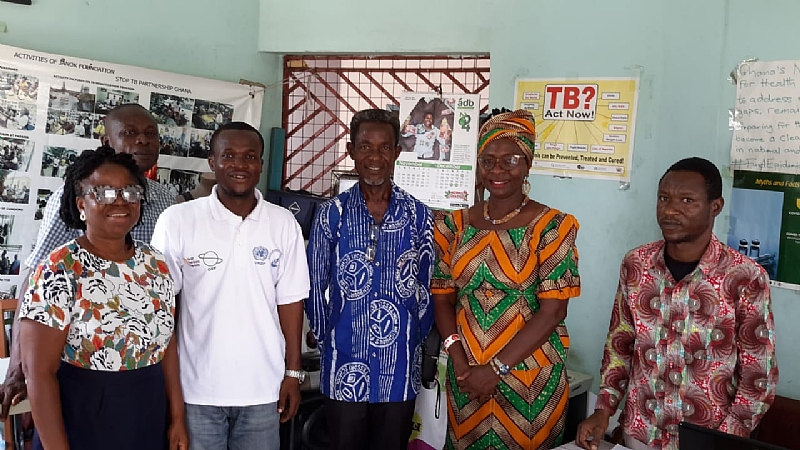The Greater Accra Tuberculosis Advocacy Committee, part of the National Tuberculosis Programme, has recently emphasized the urgent need for Metropolitan, Municipal, and District assemblies to focus more intensely on tuberculosis (TB) cases within their respective communities. This call to action stems from the recognition that TB is a deadlier disease than HIV/AIDS, yet it often remains overlooked, mired in silence, and surrounded by misinformation. Such negligence has contributed to delays in diagnoses, limited treatment options, and, ultimately, unnecessary suffering for patients. The committee believes that a more proactive approach is necessary to combat TB’s impact on public health, urging local assemblies to work in tandem with the Ghana Health Service to secure funding and resources essential for supporting vulnerable populations affected by TB.
At a recent TB advocacy meeting, coordinated efforts were discussed that aim to develop effective laws and guidelines to address the broad spectrum of challenges faced by those living with TB. Madam Jane Amerley Oku, Chairperson of the TB Advocacy Committee and representative from Janok Foundation, highlighted that the neglect of TB issues has significantly deteriorated the conditions under which many patients exist. The meeting served as a platform for deliberating strategies to ensure adequate representation of TB issues in health committees, especially those focused on HIV/AIDS. The committee called for the establishment of designated TB positions within these assemblies to guarantee that discussions and initiatives surrounding TB become as prioritized as those concerning HIV/AIDS.
Madam Oku stressed the necessity for policymakers to bring TB-related issues into the spotlight, suggesting that funding for TB treatment and prevention should be included in the national budgetary allocations. She articulated the essential need for collective action in fostering a public environment where discussions about TB are normalized and encouraged. Emphasizing collaboration among all stakeholders, she envisioned a future where individuals affected by TB could access comprehensive care and essential information regarding their health conditions. This sentiment was supported by the collective desire to create a unified front against the stigma and misinformation often associated with TB, which has historically hindered effective public health responses.
Furthermore, the committee encouraged advocates and stakeholders in the health community to persist with their outreach initiatives aimed at increasing awareness and understanding of TB. By broadening consultations and fostering engagement at multiple levels of society, the effectiveness of TB initiatives could be significantly enhanced. The committee recognized that a multifaceted approach—bringing together healthcare providers, community leaders, and policymakers—will be pivotal in expediting the development of a law that allocates a special fund dedicated to addressing TB challenges. The successful enactment of such legislation would represent a critical step toward combating TB and ensuring that its various health implications are adequately addressed.
In their ongoing efforts, the committee reiterated the importance of advocacy as a tool for sparking change. By raising awareness in communities, advocates could ultimately help reduce stigma and misinformation that often accompanies TB. This grassroots approach not only aids in early detection and treatment but also empowers individuals to take charge of their health. As more community members engage in these conversations, the committee hopes to foster a culture of openness and support that will facilitate improved health outcomes for TB patients across Greater Accra and beyond.
In summation, the Greater Accra TB Advocacy Committee’s call for greater attention to TB highlights the critical need for collaborative action and support from local assemblies and the Ghana Health Service. The reflections and recommendations put forth at the advocacy meeting underline a proactive approach toward addressing TB’s challenges, emphasizing the necessity for appropriate policies, funding, and community engagement. Through sustained advocacy and a commitment to normalizing discussions surrounding TB, the committee endeavours to create an equitable future where individuals affected by tuberculosis receive the care, support, and information they need to lead healthy lives.














